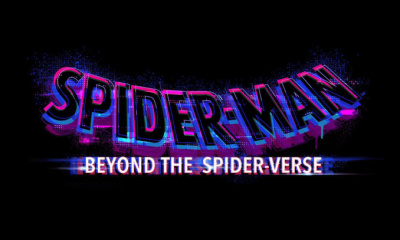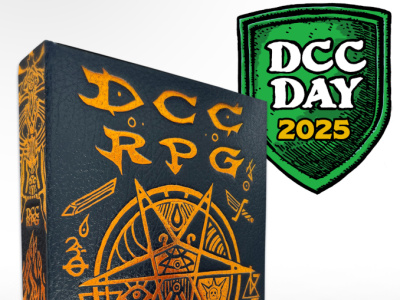Confessions of a Comic Book Guy is a weekly column by retailer Steve Bennett of Mary Alice Wilson's Dark Star Books in Yellow Springs, Ohio. This week, Bennett continues his discussion of comic content and its impact on sales:
You know what's really wrong with most modern super-hero comics? They've become super-villain comics. And maybe if we retrace our steps we can figure out how we got so lost in the first place.
In the 70s the continued story became the new status quo; it was heralded as an important innovation for creators, a means to tell stories more complex than the simple 'good triumphs over evil' parables of the past. But it was also a powerful sales tool that forever changed how comic books were marketed; publishers became aware of just how much money could be made from selling next month's comics.
It's when the super-hero comic book left behind crime and science fiction plots derived from pulps and B-Movies to become a sprawling saga that was half soap opera, half professional wrestling. That mix might seem incongruous but both media have a lot in common; for one; they just share the notion you should never completely satisfy your fans. Because if good was to definitely triumph over evil, the story's over and the fans might not come back for more.
Gratification deferred meant justice delayed, at least until the pulse-pounding conclusion, continued next issue! But even when it was finally over with justice prevailing and the villains sent to jail, you knew they'd always come back spoiling for a rematch with the hero.
'You can never make fans happy by giving them what they want' has become the mantra of modern writers and editors. What they can do though is outrage fans enough so they'll return (at least for a while) to see what terrible new fate befalls their hero this month. To accomplish this, creators had to keep creating more heartbreak, even bigger challenges, and even worse villains, and a new phrase entered the lexicon, 'upping the ante.'
Cut to the late 80s, the days of Reagan and Rambo, when America wanted their heroes tougher. Traditional super-heroes, having to remain good role models for their owners, couldn't compete. Maybe that's why so many were so eager to vote Robin dead in '88 or took secret delight when Superman died and Batman was broken in '93. The general consensus being they had to be punished, for being old fashioned, sure, but also for no longer being strong enough to protect us.
After the hype died down the originals were kept around for traditionalists (and merchandising) but up rose their shadowy 'Others,' anti-hero doppelgangers free of their moral compasses: guys like Thunderstrike, War Machine, Venom, Cyborg, and The Eradicator, all edgy and attitudinal, visually indistinguishable from villains. Not to mention 'heroes' like Killpower, Ravage and Death's Head (don't get me started on Image).
And the villains...in the old days they had a choice of (a) going to jail, (b) their lair blowing up only to return at a later date, or (c) repenting, Dr. Doom and The Kingpin being the exceptions to the rule. But now villains operated with equal parts immunity and impunity; the really big ones could be repeatedly thwarted but never captured or defeated.
After 9/11 everyone agreed there was a need for heroes, but no one could figure out exactly who they should be or how they could meet with the current crisis (unless you count Marvel's ill-conceived attempt to turn firemen, police and emergency care workers into larger than life figures in The Call). At the time there was concern in the press we'd soon be seeing super-heroes pressed into service against our new enemies; but it never happened because, as much as I wish otherwise, you can't win a war on terror with a punch to the jaw.
But the villains could get worse and, boy did they. Metallo never officially joined Al-Qaeda, but, in context, it became clear super-villains were becoming stand-ins for terrorists (or serial killers, Americas other favorite new bogeyman). And a new cycle of relentless ratcheting up of their powers and depravity began to simple crooks became killers, killers became serial killers.
And super-heroes seem incapable of stopping them.
In yet another one of those weird inter-company coincidences, in the same month, recently both Marvel and DC established that in their universes there was something like 1,500 empowered offenders, at liberty and not of good intent. I would at this juncture like to make the simple point that if it's a super-heroes job to stop super-villains (and let's face it, they don't much like mixing with our kind anymore; I find it remarkably representative of this contempt for humanity Supergirl is rooming on Paradise Island) and they're allowing this many to run around loose, what the hell use are they?
In the current status quo at both Marvel and DC you have bad guys fighting total war; they kill, rape, raze and even cannibalize anything that gets in their path without compunction, while the good guys are basically UN Peacekeepers, hands effectively tied behind their backs. The very best they can hope for is to briefly inconvenience their foes.
Maybe I'm getting a tad too 'meta' here, but however grotesquely exaggerated, super-hero comic books are supposed to reflect reality the way we'd like it to be. Super-heroes being icons, its easy to slip on their personas like slippers to experience the utter wish fulfillment thrill of punishing those who've wronged us.
But somewhere along the line we decided that wasn't 'realistic,' so now our heroes sit on the sidelines, as helpless as we are.







